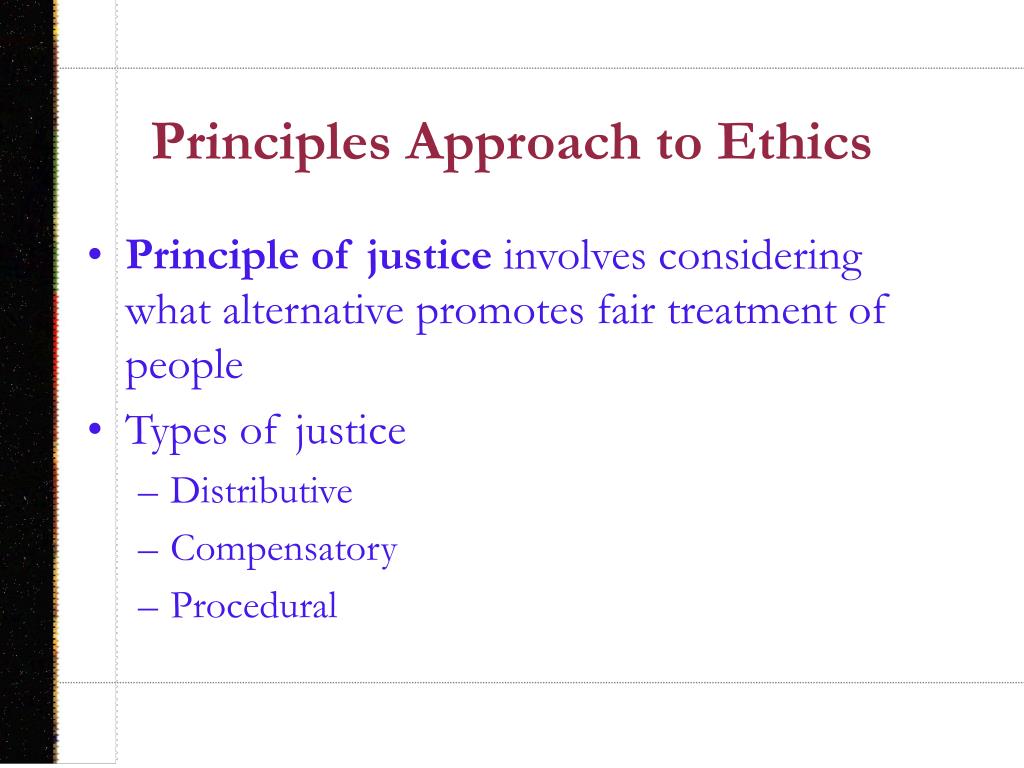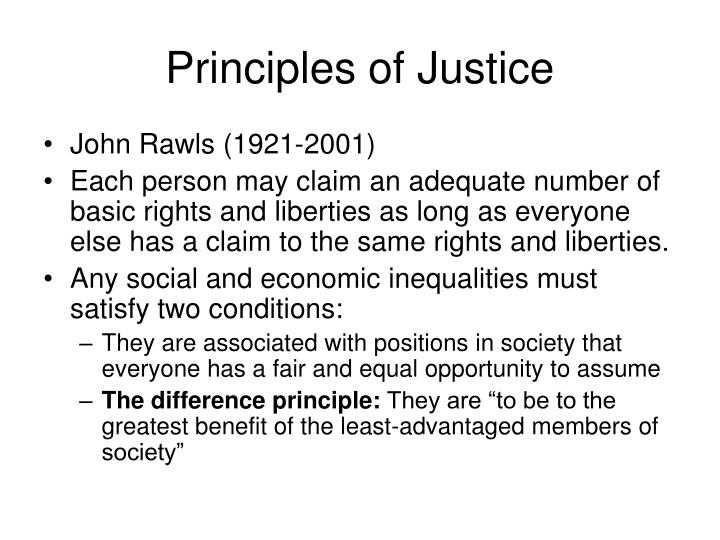

Provision 5: The nurse owes the same duties to self as to others, including the responsibility to promote health and safety, preserve wholeness of character and integrity, maintain competence, and continue personal and professional growth. Provision 4: The nurse has authority, accountability, and responsibility for nursing practice makes decisions and takes action consistent with the obligation to promote health and to provide optimal care. Provision 3: The nurse promotes, advocates for, and protects the rights, health, and safety of the patient. Provision 2: The nurse’s primary commitment is to the patient, whether an individual, family, group, community, or population. Provision 1: The nurse practices with compassion and respect for the inherent dignity, worth, and unique attributes of every person.
ETHICAL PRINCIPLE JUSTICE CODE
Nine Provisions of the ANA’s Code of Ethics for Nurses Read a summary of the nine provisions in the following box. Each provision contains several clarifying or “interpretive” statements. The Code of Ethics for Nurses contains nine provisions. A code of ethics makes explicit the primary goals, values, and obligations of the profession.” The ethical tradition of nursing is self-reflective, enduring, and distinctive. It states, “Individuals who become nurses are expected to adhere to the ideals and moral norms of the profession and also to embrace them as a part of what it means to be a nurse. The American Nurses Association Code of Ethics for Nurses With Interpretive Statements is an ethical standard that guides nursing practice and ethical decision-making.

Uses the Code of Ethics for Nurses With Interpretive Statements as a moral foundation to guide nursing practice and decision-making.


 0 kommentar(er)
0 kommentar(er)
